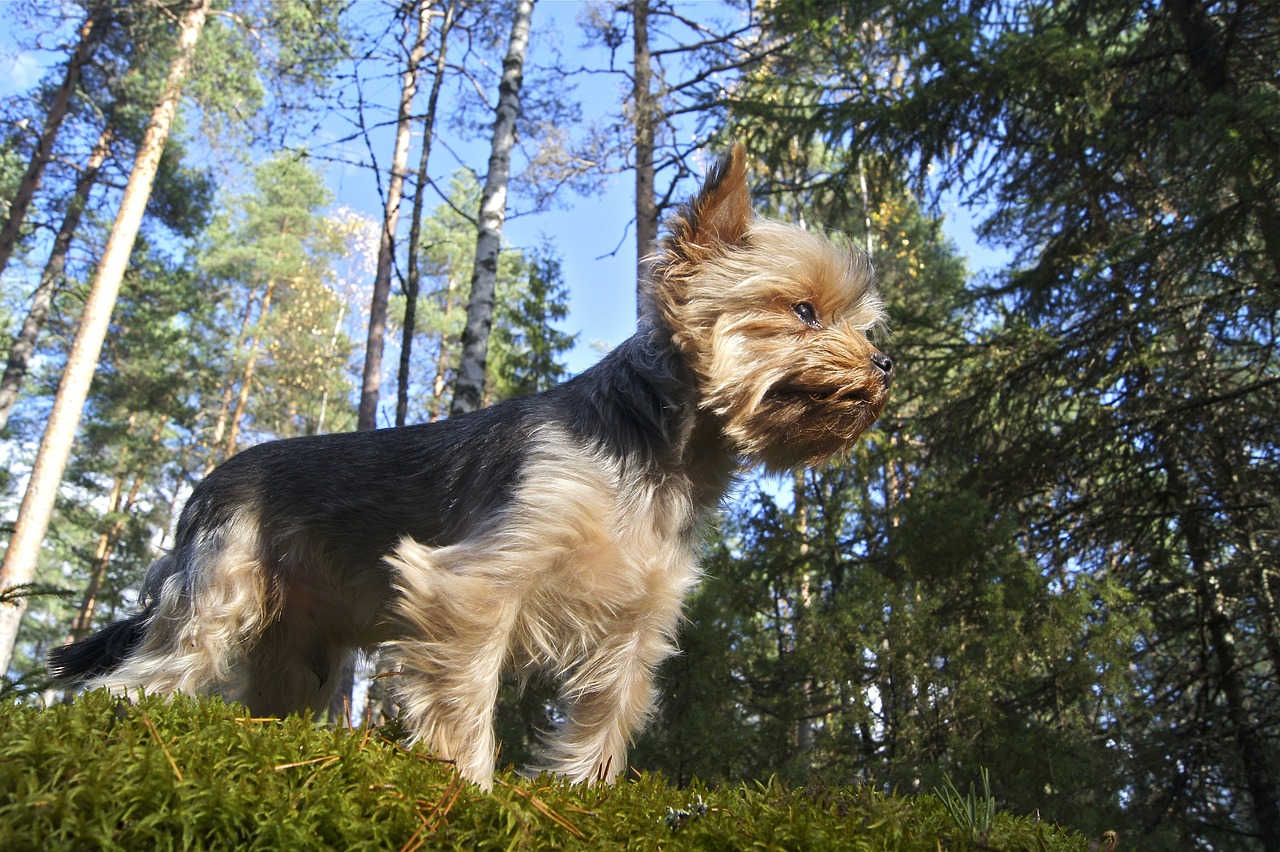The Yorkshire Terrier, fondly known as the Yorkie, is a popular breed admired for its vibrant personality and elegant appearance. Originating from the county of Yorkshire in England, these small dogs are known for their long, silky coats and inquisitive nature. Regarding weather tolerance, Yorkies require special consideration due to their size and coat type, particularly in cold climates. This article explores the suitability of cold weather for Yorkies, addressing their physical characteristics, health concerns, and essential care tips for colder months.
Understanding Yorkie’s Coat and Cold Weather
Yorkies are adorned with a fine, silky coat that is more similar to human hair than traditional dog fur. This unique coat type provides some insulation, but it’s not as efficient in retaining heat as the thicker, double coats seen in many other breeds. Consequently, Yorkies can be more susceptible to cold temperatures, and their small size further contributes to a higher risk of losing body heat quickly.
Health Risks for Yorkies in Cold Climates
Exposure to cold weather can be challenging for Yorkies. They are at risk of hypothermia, where the body temperature falls below normal, leading to shivering, lethargy, and in severe cases, life-threatening conditions. Another concern for Yorkies in cold weather is the risk of frostbite, particularly affecting the ears, paws, and tail. In addition, Yorkies, being small in stature, can find navigating through snow or cold surfaces difficult, which can lead to stress and discomfort.
Essential Cold Weather Gear for Yorkies
Protecting your Yorkie during cold weather is paramount. Dog coats or sweaters are essential for Yorkies in cold climates. These garments should be warm yet comfortable, allowing free movement without being overly tight or cumbersome. Additionally, booties can protect their delicate paws from cold surfaces and deicing salts, which can be harmful if ingested during grooming.
Indoor Comfort for Yorkies in Winter
Ensuring a warm and cozy indoor environment is crucial for Yorkies during winter. They prefer a comfortable, draft-free sleeping area with a soft, warm bed or blanket. Keep the indoor temperature consistent, avoiding sudden drops that could be uncomfortable or harmful to these small dogs.
Diet and Nutrition for Yorkies in Cold Weather
A Yorkie’s dietary needs may change slightly during colder months. They might require slightly more calories to help maintain their energy levels and body heat, especially if they spend time outdoors. However, balancing this with regular exercise is crucial to prevent weight gain. Consult a veterinarian for dietary recommendations tailored to your Yorkie’s health and activity level.
Exercise and Mental Stimulation for Yorkies in Winter
Regular exercise routine is essential for Yorkies, even in cold weather. Short, frequent walks are preferable to long periods outside, reducing the risk of cold exposure. Indoor play and training sessions can also provide much-needed mental and physical stimulation during days when weather conditions limit outdoor activities.
Recognizing and Managing Cold Stress in Yorkies
Yorkie owners should recognize signs of cold stress, such as excessive shivering, reluctance to move, and seeking warmth. If these signs are observed, it’s essential to provide warmth immediately and consult a veterinarian. Regular monitoring and adjusting their exposure to the cold is critical to preventing such stress.
Regular Health Checks and Grooming in Winter
Regular veterinary check-ups are essential in winter to ensure the cold weather does not compromise your Yorkie’s health. Discuss any concerns specific to cold weather with your vet, such as joint stiffness or skin dryness. Grooming is also essential; keeping their coat clean and tangle-free helps maintain their insulating properties.
Safe Outdoor Activities for Yorkies in Cold Weather
When engaging in outdoor activities, choose safe, sheltered areas where your Yorkie can enjoy the outdoors without being overly exposed to the cold. Avoid icy or snowy surfaces that can be difficult for them to walk on. Also, be mindful of the duration of outdoor activities, keeping them short and enjoyable.
Conclusion
With their small size and unique coats, Yorkies need special care during colder months. Protecting them from freezing temperatures with appropriate clothing, maintaining a warm indoor environment, adjusting their diet and exercise, and being vigilant about their health are vital to ensuring their safety and comfort in cold weather. With the proper care and attention, Yorkies can navigate complex weather challenges while maintaining their cheerful and loving disposition.
Frequently Asked Questions About Yorkies and the Climates They Thrive In

 Toledo, United States.
Toledo, United States.